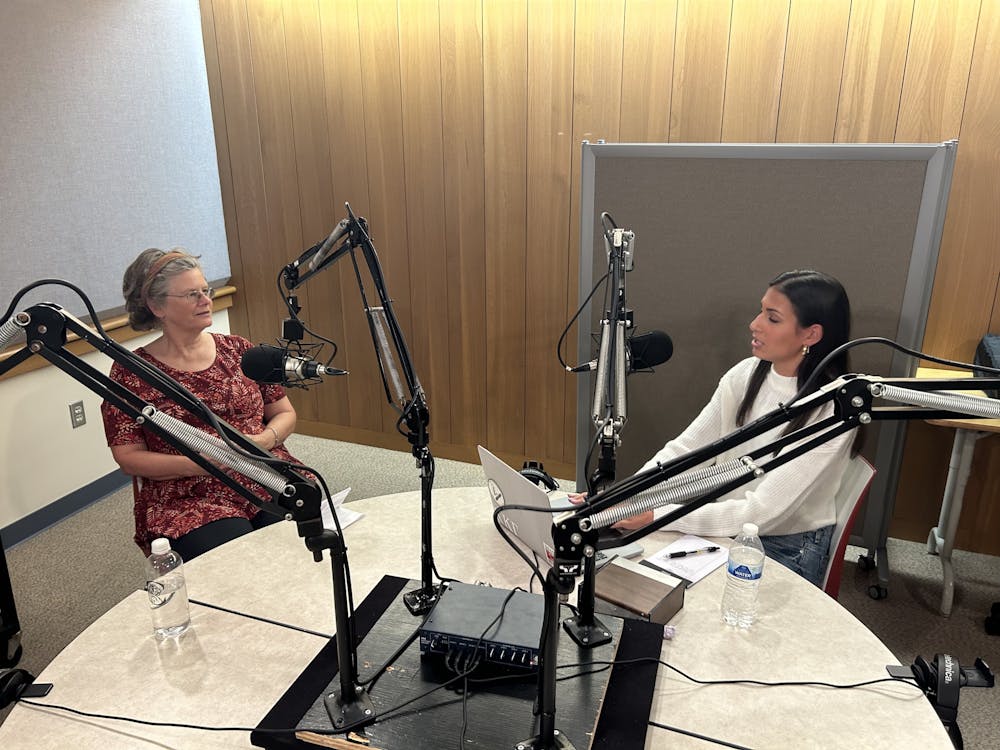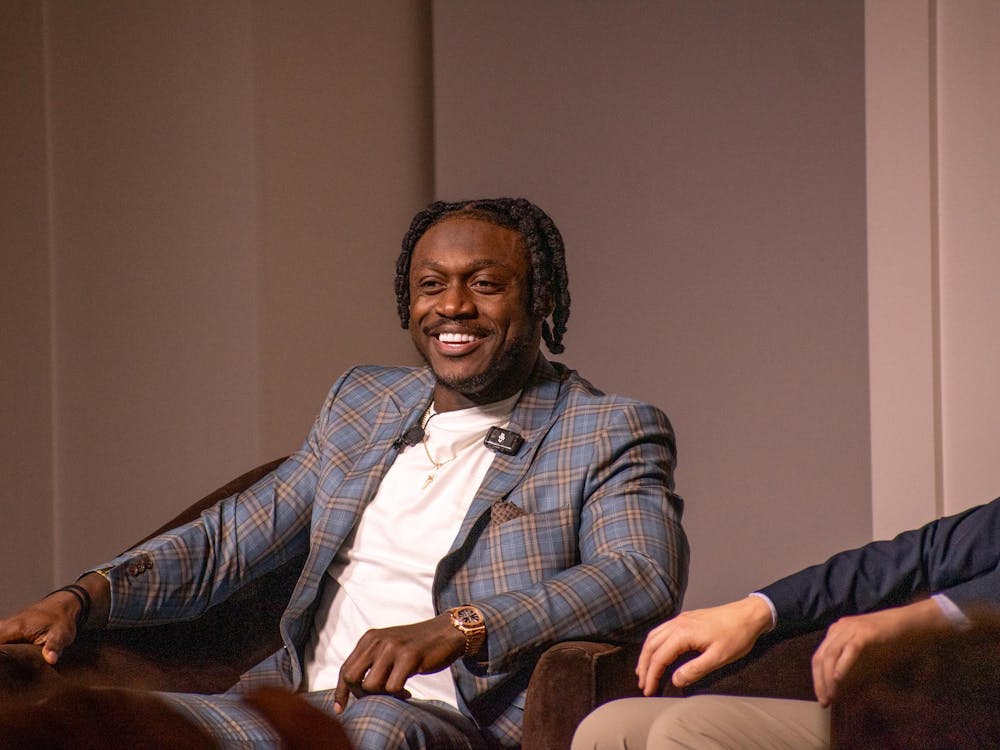The Miami Student’s podcast “People and Policies” focuses on Oxford’s local election cycle, featuring conversations with candidates about various issues relevant to students, faculty and residents.
On this episode, Assistant Editor Olivia Patel sits down with current Oxford Township Board of Trustees member Kate Rousmaniere. The two discuss the issue of homelessness, bike lanes and civic awareness here in Oxford.
Editor’s note: This conversation has been edited for concision. Listen to the podcast for the full conversation.
Patel: Tell me about yourself.
Rousmaniere: I am a 32 year resident of Oxford, I teach at Miami university in the department of educational leadership, and about 10 years ago I got involved with local government. I ran for city council and I held that role for eight years, and was mayor for four of those years. Then when I was term limited off of that, a trustee position opened up and I ran for that, and I’ve held that position ever since.
Why was the township trustee position so appealing to you?
The township is interesting because it is the rural area around the city of Oxford. It is an area of Oxford that I live in, and I’ve been involved in a lot of community organizations that included people from the township, so I was interested in that.
What are some of those community organizations?
The Coalition for a Healthy Community, which comes out of the Talawanda school district, Oxford seniors, which addresses the needs of seniors in the greater Oxford area, and the Family Resource Center, which provides food and social services for the people in the greater Oxford area.
What are some things that you accomplished as mayor?
As mayor, I had not a lot of power, but I had a lot of influence. One of the things I was very influential on was the environmental consciousness and also bike lanes, which was kind of my signature thing. I started getting people talking about bike lanes, and I learned that to raise an issue you just need to start talking about the issue, things will change.
Enjoy what you're reading?
Signup for our newsletter
Have you established any bike lanes?
Yes. The bike lanes that are in the city of Oxford were developed in the last eight years, and began around the time that I was on city council.
Why are they so important to you?
It’s important for environmental reasons, because then we will have less cars, and it’s important for health reasons as well. It is just a really interesting way to think about how people can get around a small town.
What are other [environmental] initiatives you have pursued?
I was also very interested in improving the life of people in need in the city of Oxford and in the township. There is a lot of high poverty, and it shows up a lot in the Talawanda school district. So how to develop social services for those kids and attention for people in need.
How do you get people to pay attention to the poverty in Oxford?
One of the topics I am really interested in when it comes to health and wellness is drug and alcohol problems, and there are a lot of those problems in the rural community which are very hidden. One thing we do is raise that issue with residents.
How do you plan on getting citizens aware of this issue?
The Coalition for Healthy Communities does a lot of that work through social media. They also have a big federal grant right now that’s working on drug problems in the greater Oxford area. Face-to-face contact with people, narcan disposal, actual support instead of telling these people to just ‘get off drugs and off the streets.’
Do you support the affordable housing initiative?
I support public housing. Private development is good, but the problem with it is we legally can’t force a private citizen to do something they do not want to do. However, the city of Oxford is not in a position to develop public housing.
You have extensive experience serving the community of Oxford. How have your past experiences made you a better trustee?
I’ve really learned to listen. I’ve learned that one of the key elements to being a local government official is patience and listening to people. People tell me their concerns and I figure out how to translate that into government policy, because I have the experience to do that. I really like face to face communication with people.
What are some other things you are focused on as a trustee?
Trustee focuses on police and roads. Our township police know the people in the community better than anyone, so I see how social work can work through the police. Electrical aggregation will be on the ballot this year, and it consolidates the resources for electrical services and, ideally, provides lower prices for people. One of the options is to have a solar or wind option for residents who want to use renewable energy.
How would you describe the relationship between Oxford and Miami University?
It’s good, it could be better. Off campus housing is a key to the issue. The town of Oxford used to be a more rural town where families with kids lived, but because of enrollment changes in higher education, mostly students now live in the mile square area. I think there can be better relationships between the two. The university has to think about education and its own finances, and cities have to think about paving roads and fixing things unrelated to the university.
As far as I can tell now, the city is doing some regular good outreach. Historically, there have been times where the city had done things and not told the university. That happened recently where the city of Oxford had a homecoming parade and not told the university. There is an agreement between the university police and Oxford police, so there is some level of discussion between the two, but there always could be more.
What is the most important issue facing Oxford today?
I think financial stability, which is a really hard nut to crack. In our school system, there was a levy last fall which was voted down, which meant that things like bus services had to be cut. It’s a terrible tragedy, and yet citizens did not seem to understand that they were making this happen. I would like people to understand how the government works better, so they understand that when they do a certain thing, when they make a certain action, it impacts other people. That’s civic awareness, and I’d love for people to be more civically aware.




